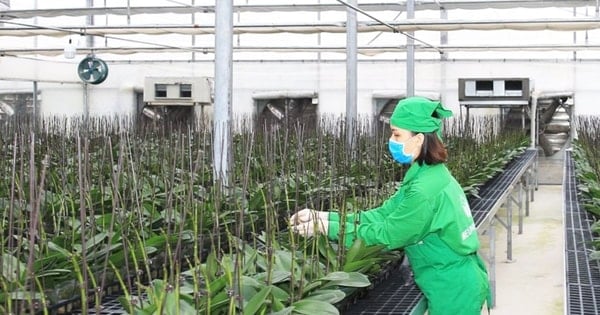As interest rates rise, saving becomes a more attractive option for many people, but to make the right decision, you need to carefully consider many different factors.
Benefits of saving when interest rates increase
Higher Yields: One of the most obvious benefits of saving when interest rates are rising is higher returns on your money. With higher interest rates, you’ll earn more interest than you would during low interest periods. This can help you build wealth faster and create a steady stream of passive income.
Financial security: Savings is a very safe form of investment. Banks often have deposit insurance policies, which help protect your money against financial risks. This is an important factor that helps you feel more secure when depositing money in the bank, especially in a volatile economic context.
Increased liquidity: Savings accounts offer greater liquidity than many other forms of investment. This means you can withdraw your money when needed without too much trouble or incurring large fees. High liquidity makes it easier to manage your personal finances and deal with emergencies.

Risks of saving when interest rates increase
Inflation: One of the important factors to consider is inflation. If inflation is higher than the savings interest rate, the real value of the money you save may decrease. This means that even though you receive a higher interest rate, the purchasing power of that money has decreased due to inflation. Therefore, it is important to carefully consider the inflation rate when deciding to save.
Missing out on other opportunities: When interest rates rise, not only does saving become more attractive, but other investment opportunities such as stocks, bonds, or real estate can also offer higher returns. Investing in these areas can provide greater returns, but also comes with higher risks. You need to carefully consider different investment options to make a decision that suits your financial situation and risk appetite.
Everyone has a different financial strategy, and savings may be right for some people but not for others. If you have a long-term financial plan and want to accumulate assets safely, savings may be a good choice. However, if you are looking for higher returns and are willing to take on more risk, you may want to consider other investment opportunities.
Factors to consider when saving
Bank policy: Before deciding to deposit savings, you should carefully learn about the bank's interest rate policy. Some banks may offer higher interest rates than others, so it is important to compare and choose the right bank.
Term of deposit: Term of deposit is also an important factor to consider. Short-term deposits typically have lower interest rates than long-term deposits. However, long-term deposits may lock you in, meaning you cannot withdraw your money early if necessary without incurring a penalty fee.
Bank incentives: Many banks offer attractive incentives and promotions for savings deposits, such as gifts, bonus interest rates, or free service fees. You should learn about and take advantage of these programs to maximize the benefits of your savings.
Source


![[Photo] Looking back at the impressive moments of the Vietnamese rescue team in Myanmar](https://vstatic.vietnam.vn/vietnam/resource/IMAGE/2025/4/11/5623ca902a934e19b604c718265249d0)

![[Photo] "Beauties" participate in the parade rehearsal at Bien Hoa airport](https://vstatic.vietnam.vn/vietnam/resource/IMAGE/2025/4/11/155502af3384431e918de0e2e585d13a)


























![[Photo] Summary of parade practice in preparation for the April 30th celebration](https://vstatic.vietnam.vn/vietnam/resource/IMAGE/2025/4/11/78cfee0f2cc045b387ff1a4362b5950f)

























































Comment (0)